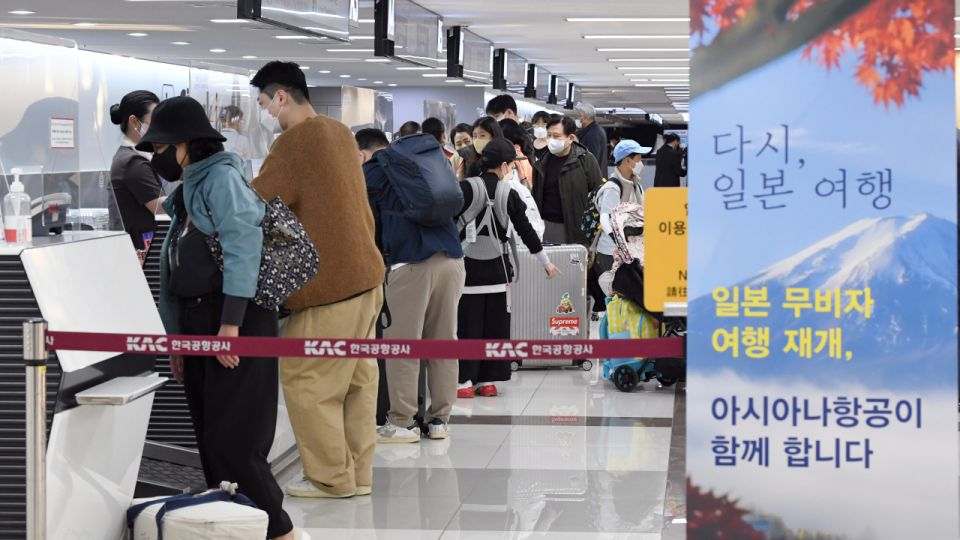October 12, 2022
SEOUL – The Japanese government resumed visa waiver programs for 68 countries and regions Tuesday, lifting COVID-19-induced restrictions for South Koreans visiting Japan.
With the visa waiver program reinstated, visitors from 68 countries and regions are able to stay in Japan for up to 90 days without a visa. The upper limit of people entering the country per day — set at 50,000 — has also been abolished, and individual visitors coming for sightseeing are now allowed.
Antivirus measures remain in place. When entering Japan, visitors must submit a certificate that proves they have been vaccinated at least three times or a negative test result within 72 hours before leaving the country of departure. Additional testing and quarantine are not necessary.
The new measures come two years and seven months since Japan banned visa-free entry to Koreans and suspended the validity of existing visas on March 9, 2020. That was extended to other countries and regions a while after. At that time, the Korean government strongly criticized Japan’s decision as a unilateral measure without consultation, labeling the decision “unreliable,” and responded in kind.
Japan has been gradually reopening the door to foreign visitors since March, allowing international students and visitors on business. In June, Japan began accepting group tourists. The Korean government has temporarily allowed visa-free visits of Japanese travelers since August, and this measure will be continued through the end of October.
As the resumption of visa-free entries has coincided with a weakening yen, demand for travel in Japan is expected to soar rapidly.
According to the Nikkei daily on Tuesday, reservations for international flights to Japan between November and December have surged almost three times compared to September. The paper also delivered local think tank Daiwa Institute of Research’s report, which expects that if the yen exchange rate per dollar is maintained as low as 145 yen, foreign tourists’ consumption will reach 5.7 trillion yen ($39 billion) a year.
Yomiuri Shimbun said on Monday that Japanese travel reservation site KKday, which has 7 million members from across Asia, received 20 times more reservations from Korea in September compared to the previous month. Hana Tour, a Korean travel agency, also saw an enormous 776.6 percent increase in travel reservations to Japan from Sept. 1 to Sept. 22, compared to August.
Japanese Prime Minister Fumio Kishida has already shown the will to accelerate economic recovery through enhancing tourism. “I will revive tourism and maximize the strength of weak yen by resuming visa-free travel. The foreign visitors’ travel consumption will exceed 5 trillion yen a year,” Kishida said in an address to Japan’s parliament on Oct. 3.
The Japanese government will also implement measures to support domestic travel of Japanese citizens from Tuesday, mainly to support the tourism, accommodations and food industries that have suffered during the COVID-19 pandemic.
The policy, called “National Travel Support,” provides up to 8,000 yen to one tourist per day in case the person has reserved both transportation and accommodations, or up to 5,000 yen per day for tourists who have only reserved accommodations. Vouchers worth 3,000 yen on weekdays and 1,000 yen on holidays will be provided for use at restaurants around tourist spots.


